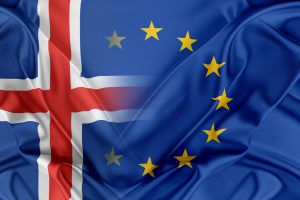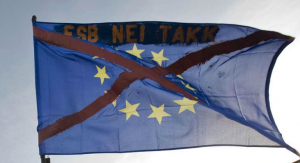An article of mine has just been published titled Iceland and European integration in Oxford Research Encyclopaedia of Politics (Oxford University Press). I argue in the paper that the Icelandic political elite has always hesitated to take any moves toward closer engagement with Europe unless such a move is seen as necessary to deal with a crisis situation. Decisions to engage with the European project have not been made based on outright economic and political preferences. They have primarily been based on economic or political necessity at times when the country has faced a deep economic downturn or its close neighboring states have decided to take part in European integration. The country has essentially been forced to take part in the project in order to prevent crises from emerging or to cope with a current crisis situation.
Baldur Thorhallsson
Professor at the Faculty of Political Science at the University of Iceland. Baldur is also the Jean Monnet Chair in European Studies and Programme and Research Director at the Centre for Small States at the University. His research focuses primarily on small state studies, European integration and Iceland’s foreign policy. He has published extensively in international journals. He has contributed to several academic books and written two books on small states in Europe, Iceland and European integration – On the Edge and The Role of Small States in the European Union. He holds a PhD (1999) and MA (1994) in Political Science from the University of Essex in England. In 2002, Baldur established the Centre for Small State Studies at the University of Iceland in association with colleagues from around the globe and re-established the Icelandic Institute of International Affairs. He was Chair of their Board until 2011. Baldur has taught on small states at several universities and was the ‘Class of 1955’ Visiting Professor of International Studies at Williams College (MA, USA) in 2013 and Leverhulme Visiting Professor at the Queen Mary University of London in 2017. Baldur is currently working on a number of research projects related to Iceland’s external affairs, small states in European integration, and theories on small states, as well as teaching two courses on small states in Europe.
Address
Faculty of Political Science
School of Social Science
University of Iceland
101 Reykjavik
IcelandOffice in Oddi 223
E-mail: baldurt@hi.is
Tel: +354-525-5244Bookmarks
Archives
- May 2022 (1)
- April 2022 (5)
- March 2022 (4)
- February 2022 (4)
- January 2022 (2)
- December 2021 (4)
- October 2021 (4)
- September 2021 (5)
- May 2021 (1)
- January 2021 (1)
- December 2020 (2)
- November 2020 (4)
- March 2020 (2)
- January 2020 (2)
- December 2019 (1)
- November 2019 (9)
- August 2019 (2)
- May 2019 (2)
- April 2019 (1)
- March 2019 (2)
- December 2018 (1)
- October 2018 (1)
- September 2018 (1)
- July 2018 (7)
- May 2018 (1)
- April 2018 (2)
- March 2018 (5)
- February 2018 (1)
- November 2017 (2)
- October 2017 (4)
- September 2017 (1)
- August 2017 (1)
- July 2017 (1)
- June 2017 (6)
- May 2017 (6)
- April 2017 (1)
- March 2017 (3)
- February 2017 (1)
- December 2016 (2)
- November 2016 (9)
- October 2016 (11)
- September 2016 (7)
- August 2016 (2)
- July 2016 (2)
- June 2016 (9)
- May 2016 (6)
- April 2016 (3)
- March 2016 (3)
- February 2016 (4)
- January 2016 (2)
- September 2015 (5)
- August 2015 (1)
- March 2015 (15)
- December 2014 (3)
- November 2014 (6)
- October 2014 (7)
- September 2014 (3)
- August 2014 (8)
- June 2014 (6)
- May 2014 (8)
- April 2014 (10)
- February 2014 (4)
- January 2014 (2)
- December 2013 (4)
- November 2013 (2)
- October 2013 (4)
- September 2013 (3)
- August 2013 (3)
- July 2013 (14)
- June 2013 (17)
- May 2013 (9)
- April 2013 (13)
- March 2013 (11)
- November 2012 (1)
- October 2012 (3)
- September 2012 (1)
- August 2012 (2)
- June 2010 (1)
- June 2009 (2)
- July 2003 (1)
- March 2003 (1)
- December 2002 (1)
- November 2002 (1)
- October 2002 (1)











